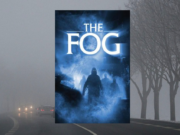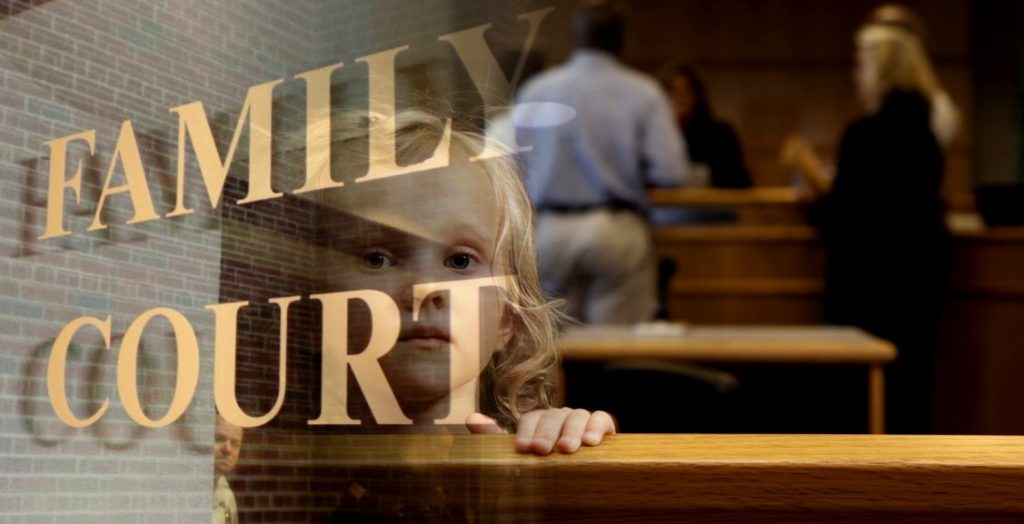Dr Amanda Gearing
THE INK is well dry now on the recommendations of the Royal Commission that pave the way for improved child protection in institutions in Australia.
One of the first systemic reforms that needs to be addressed now is to apply the recommendations as far as is possible to children who are under the control of the “institutions” involved in the Family Law system. Failures of the past, of disbelieving children until there was a criminal conviction cannot be allowed to continue.
To cite just one example: a girl of 8, who described being bound and sexually assaulted was found by a court-appointed psychiatrist, with no expertise in child sexual abuse, to have fabricated the claims. The mother, who believed the child ‘s disclosures was found by the psychiatrist to be ‘too anxious’. The child was ordered to visit the father. Years later when the child turned 18 she disclosed that she had been sexually assaulted during court-ordered access visits.
The Royal Commission
The Royal Commission has found, as have previous research studies, that children who disclose sexual abuse are almost always telling the truth [refer to research by Oatley below]. If this research finding is carried across to the Family Court system, we would expect to see 97.5% of children who disclose sexual abuse being protected from the alleged offender.
This is simply not happening. Try calling a family lawyer and they will say ‘don’t report the abuse or you risk losing your child to the ex’.
Most children do not report abuse but those who do should be immediately protected by the Family Law system including state and federal agencies including police, child safety departments, independent children’s lawyers and family report writers whose role is to protect children as their first priority.
The Institution that Is the Family Court
At present, domestic violence orders issued in state jurisdictions are routinely over-ruled by Family Law orders and judgements and order children into contact with people whom the state child protection system deem a danger to them. There are reported cases where judges make findings that sexual abuse has mostly likely occurred and yet they still provide the offender with access to the child, judging the child’s relationship with the offender of more importance than the betrayal of that same relationship by the offender.
One Sydney psychiatrist, for example, has publicly stated his view that most children who allege abuse are not telling the truth and that his statistics are reversed.
Idanov and Dunstable (2016) is a rare case where the judge found that
“the potential benefit to the children of spending unsupervised time with the father was outweighed by the risk of the serious consequences and detriment that would arise as a result of the type of sexual abuse alleged.”
Any failing in the system is a break in the chain of child protection. The system is only as strong as its weakest link – and there are TEN WEAK LINKS that need attention:
- Silence in the Court
There is a lot of confusion about the meaning of Section 121 of the Family Law Act. This confusion effectively silences abuse victims, protective parents and journalists who are cautious about breaking a law that is not clear in its meaning.
Protective parents who flee into hiding with their children after exhausting all other avenues of protection, remain silenced. However the abusive former partners can be empowered and emboldened with the imprimatur of the Court to continue attacking the credibility of the protective parent in the public arena via the media.
The judicial power of courts to determine with whom a child may or may not associate, is leading to harm and sometimes deadly outcomes for children.
For example, some children who are forced to visit a parent of whom they are terrified, have become actively suicidal.
2. Disclosures of abuse
Children usually don’t verbally disclose sexual abuse, even when it is occurring and even when the abuse amounts to serious violent offences. Those who do report may take years or decades to do so.
Some do not intend to disclose but their behavioural changes are symptoms that their protective parent identifies, for example being withdrawn, regressing with toilet training, having nightmares, dissociating from their surroundings etc. Children who disclose abuse may do so slowly and gradually. Protective parents frequently report being unsure what was happening to their child despite seeing symptoms. In the context of family court cases, a parent may agree to consent orders to share care with the other parent, only to discover the abuse later and being unable to overturn the consent orders.
Protective parents who have signed consent orders for contact of the children with the alleged abuser can be served with a contravention order for not complying with orders. Some protective parents sign consent orders only because they have no money to fight an application for contact. In these cases the protective parent may know their child is disclosing alleged criminal offences but is required by law to provide the child for contact. Section 286 of the Criminal Code may provide a defence of reasonable excuse.
Parents can find themselves in a very uncomfortable Catch-22 situation. If a parent withholds a child from contact they breach court orders but if they hand the child over to an allegedly abusive parent the child may be removed from their care by Child Safety for failing to protect the child.
3. Reporting abuse
When children do report sexual abuse, they are most likely to be telling the truth. (Research by Oatley found 97.5 per cent of reports to be substantiated.)
Reports of abuse made to police are often disregarded by police simply because there is a Family Court case on foot. In several cases, alleged offenders have filed a Family Court action within days or even hours of police seeking to arrest them for crimes against a child. Reports to Child Safety departments are frequently poorly handled. For example, in Queensland each single notification is assessed in isolation without all the evidence being collated to determine whether a child is at risk.
In addition, child safety only steps in to protect if a child has no protective parent. If there is one protective parent, the department takes no action to support the child or the protective parent. This leaves the protective parent to try to mount a de facto criminal case that is frequently costly and ineffective and results in the protective parent losing custody of the child and the child being placed in the custody of the offender.
4. Failure to investigate or charge
Police are usually very reluctant to investigate or charge a parent with a criminal offence while there is a Family Court case in progress, although there have been some cases. Evidence is a major stumbling block. Protective parents who believe their child frequently assume that if they video a disclosure by the child that that will be ‘evidence’. Sadly, it is not enough for police to base a prosecution. Police require evidence such as a video of the actual abuse or DNA of the alleged offender somewhere on the child that it shouldn’t be. Police might be very sympathetic and believe the child and believe the parent but that is different from having the evidence to run a criminal prosecution to the required standard of ‘beyond reasonable doubt’. In addition, police can only lay charges if they believe there is a ‘reasonable prospect of conviction’. This is unlikely in a case where there is also a Family Law case on foot.
5. Lack of investigative power
The Family Court lacks any resources or power to investigate crime. Their role is to facilitate contact between the child and both of the parents. The Family Law Act states that the court must presume it is in the best interests of the child to have a meaningful relationship with both parents. Although legislation has been changed, the precedents already set mean that maintaining relationships can be unreasonably prioritised over safety.
An inquisitorial system might offer more promise in cases where abuse is alleged.
6. Safety v Relationship
The balance between child safety and relationship with both parents is frequently tipped in favour of relationship even when child safety departments have substantiated a risk of harm from one of the parents.
Section 60CC of the Family Law Act sets out how a court determines what is in a child’s best interest. The primary considerations are:
(a) the benefit to the child of having a meaningful relationship with both of the child’s parents; and
(b) the need to protect the child from physical or psychological harm from being subjected to, or exposed to, abuse, neglect or family violence.
Additional considerations include any views expressed by the child (depending upon their maturity, the nature of the relationship of the child with each of the parents, and other peoples such as grandparents; participation in long-term issues in relation to the child; time spent with the child; the extent to which each of the child’s parents has fulfilled, or failed to fulfil, the parent’s obligations to maintain the child; the likely effect of any changes in the child’s circumstances, including the likely effect on the child of any separation from either of his or her parents; or any other child, or other person (including any grandparent or other relative of the child), with whom he or she has been living. Practical arrangements such as where the parents live and the expense of travel; the capacity of each of the child’s parents; and any other person (including any grandparent or other relative of the child) to provide for the needs of the child, including emotional and intellectual needs.
In multicultural families, additional considerations include the maturity, sex, lifestyle and background of the child and of either of the child’s parents, and any other characteristics of the child that the court thinks are relevant.
If the child has Aboriginal or Torres Strait Islander heritage, the court also considers the child’s right to enjoy his or her culture.
The court also considers any family violence involving the child or a member of the child’s family; if a family violence order applies, or any findings made by the court in, or in proceedings for, the order.
7. Disbelief
Treating doctors and psychologists may believe the child’s disclosures of sexual assault but Family Court ‘expert witnesses’ who are often less qualified or unqualified may disbelieve the available evidence and perceive the protective parent as ‘emotionally abusive’. The protective parent is then accused of emotional harm for taking their child for medical care to cope with symptoms of the abuse such as sleep problems, toilet training regression, unexplained violent behaviour, dissociative episodes etc.
As in the case of the 8 year-old girl I described at the beginning of this article, a failure like this is a monumental disaster for the child. The protective parent is placed in the invidious position of being ordered to send a child for contact with someone they know to be violent and/or sexually abusive of themselves and/or the child.
Protective parents who seek legal advice are frequently warned not to raise their concerns about sexual abuse because they risk losing custody of the child to the other parent. This scenario has been validated by Lesley Laing at the Uni of Sydney whose research shows lawyers often telling clients not to tell the court when there’s been abuse, because the courts are likely to see this as ‘alienation’ and send the child to live or spend time with the abuser. Protective parents who believe their child’s disclosures are placed in the invidious position of either withholding the child from contact and risking being fined or jailed for contravening a court order; or handing over the child for access and risking the child will be abused. This is a disastrous position for protective parents.
8. Cost
The costs to protective parents are multi-faceted. Their sense of trust in authorities is undermined at a time when they need and deserve support and protection for themselves and their child. Protective parents may struggle to support a distressed child who is unwilling to see the other parent despite court orders that they must. The financial costs can be crippling. Some protective parents have paid over $500,000 in legal fees trying to protect their child. There is frequently a cost also to relationships in the extended family. There is also a significant cost in time spent researching the law, seeking medical help, attending medical appointments and accompanying children to appointments.
9. Final orders – not so final
Even after years of fighting in the Family Court – and maybe winning a custody battle – state child protection authorities may step in and ‘cold switch’ the child or children from one house to another against Family Court orders. The long years of sacrifice, stress, cost and effort can be summarily nullified.
10. Dying for change – and reformative legislation
Sadly, several children who have reported abuse, who were not adequately protected by family report writers or expert witnesses, and who have been placed in the care of offenders, have been killed by their abuser. The death of innocent children is a totally unacceptable outcome for children who have had the courage to report abuse and to seek help from adults and authorities.
Note: If you have documentary evidence that disclosures of abuse by a child were disregarded, you can contact me by email here.
Conclusion
In the shadow of the Royal Commission, these failures in our Family Law system need to be addressed. Evidence-based research findings are available which have the potential to repair the broken links in the child protection chain that are failing Australian children.
Listening, believing and protecting children should not need a Royal Commission. But since we’d had to have one, let’s make full use of the findings for the benefit of children who deserve the best we can offer them to ensure they experience a safe and happy childhood.
Institutional failures must be addressed. Protection of innocent children should be our top priority.































Dee can’t post any new work as she is on the phone non-stop taking calls. I am asking readers for suggestions on what to do. The “authorities” are going at it again, having arrested more O’Dea types (sorry, Patrick, I am sure you are unique) for 2 crimes:
Defeating justice, and child stealing.
This is rich, isn’t it, but we have no time to joke. The police have got someone using standover tactics on THEM. The judges are collectively out to lunch. I am afraid to contact academics for the simple reason that I will be so disappointed if they fob me off.
My mathematical guess (worth no more than a guess) is that it is mostly bluff from the top. Not that they don’t create huge disasters, but they are scared. Hate to say it but they are only human.
I am thinking: amnesty? Negotiate with the monsters? Bette than nothing.
I also think any of the parents can sue any cop or CPS worker “In their personal capacity.” They say they have immunity on the job but not if they are not doing their job. See Cronin v Town of Amesbury 1995. It’s an American case but so what.
Here is a law maxim for protective parent: Nemo tenetur ad impossibile. No one is bound to an impossibility.
A suggestion of what to do. Maybe time to work together with other Investigative journalists e.g. Caro Meldrum-Hanna-was behind two stories tonight –Four Corners and 7.30 report. hope some found time to watch. If not-make the effort.
supports current Gumshoe work
as did her work support my story
https://www.abc.net.au/4corners/australias-shame-promo/7649462
And now I am watching Q&A OMG
That’s a very helpful link, Diane, from 2 years ago. In the opening scene where the cop is taping Dylan Voller’s wrist I couldn’t help thinking it’s unfair to the cop to make him do that. I mean we are wrecking life after life od yong cops, aren’t we?
Can you give us the link to the Q and A?
Anyway this cruelty must stop. And you are right, we should mix with other journalists. Other non-Walkley award winners type thing.
Or, if they are reading this, they can get in touch with us. My contact is mary.maxwell @ alumni.adelaide.edu.au. No point calling Dee. She is on Protective Patrol.
Well, I don’t believe that the institutional crooks are running scared but they might be doing an inventory of their arsenal, counting reliable lackeys and shifting the most useful of them into positions of maximum influence.
However, I suggest that you publish my “Civil Authority and Treason” article because it is specifically designed to explain and justify morally, philosophically and “legally” the nature and purpose of civil authority and the limits to it; much as the Magna Carta attempted to way back then. I hope that it is readily understandable for a moderately literate “ordinary man”. I have made some minor revisions to the copy I sent you long ago and I would be prepared to make other alterations to accommodate what I have come to recognise as the “Gumshoe version of political correctness”.
It is important to have a comprehensive moral position to platform any activity to build confidence in the players and to lessen the inclination to anarchy that is always exploited by the Enemy.
After that, the “Australian Patriot’s Cooperative” is a practical suggestion as to how any interest group whatsoever can organise themselves to resist institutionalised perversity of any type anywhere without creating an oligarchy that can be infiltrated and taken over by lackeys of secret societies with secret agendas.
Ah, Old D, you’ll never be GPC enough for me. [Gumshoe politically correct]
But if you get your article piblished elsewere, feel free to send us a link.
An excellent, on point article. It is so disturbing to read of children killed while spending time with the abusive parent. They need to get rid of ICLs and Family Reporters. They facilitate abuse and prolong proceedings for personal gain (money). If family lawyers were worth their salt, the focus of their work in abuse cases would be assisting the protective parent in establishing the abuse – not plodding through the system billing mindlessly, achieving little. Why else would a protective parent run with their child – the law and its lawyers have failed them. A bold statement? Not when it comes from a lawyer.
Look at this, Lelia, it is so complicated. Drugs — foster homes — schemes to get funding. (I realize that is no the issue you are talking about.)
.
https://www.youtube.com/watch?v=I0OiNdj2aP4
Child Protective Investigator, Carlos Morales, describes exactly what I witnessed happening in Central Australia earlier this year and yes Mary it is so complicated, entrenched, orchestrated.
I accept Morrisons apology -“sorry” for not listening to Whistleblowers in the past — and accept the pledge that this must never happen again.
We need to see some restorative compensatory action–Maybe for starters, immediate funding for the making of a documentary where whistleblowers who have been alienated, punished and silenced are brought together as valued experts to address the current failed system and put a spotlight on the corruption.
First some truth telling that removes the perpetrators then holistic restorative practice –a different way of working.
Wowsie wow wow wow. Love it.
have people walk the inner cities with petitions about this, then simultaneous protests in every major city, with people marching to the family law courts . Emails with all the above described, and links to the personal stories of families who are/have gone through this send to many politicians. Also pointing out that judges can be gotten rid of by politicians (Dee’s new article), then case histories of the most prolific judges who send children to live with abusers. We need some sort of a poll created and shared through fb groups like Lukes army, sexual assault support groups etc which names these judges and asks people to nominate which judge sent their child to abuse
You could call it the Judicial Rogue’s Gallery. The JRG.
And boy did they ask for it.
In 2009 we had an Australia-wide rally which led to a change in the law. This was the 2012 Amendment which placed child welfare and child safety “front and centre”. This amendment is routinely ignored or over-ruled by FC personnel. The Family Court process is a sham in which many judges refuse to consider evidence. The cause of this is the Australian Chapter of the Association of Family and Conciliation Courts (AFCC). The first step to reform is the deregistration and abolition of this cartel which masquerades as a charity with tax concessions etc.
Great article Amanda, you know your stuff!!! I’d just like to add that it seems absurd that the ICL’s can form a case without even spending a minute of time with the said child that they’re supposed to be representing! So impersonal, easy to ignore their pleas of help I suppose? How many times have we seen these ICL’s having coffee with the perpetrator’s barrister, leaving in cars with the ex & their lawyer etc when they’re supposed to be impartial?
It’s a no brainer that when a child gets hysterically upset and doesn’t want to see one of their parents, one would surely ask why? Perhaps it’s because they HAVE been injured or sexually violated by them? But if the protective parent actively respect’s their wishes, they’re accused of coaching the child or Parental Alienation! Children are then forced into having a ‘meaningful’ relationship with that perpetrator! Surely this deliberate cohersion is also a form of abuse? How can a child warm to a parent that has caused them distress through family violence or sexual abuse? We’re told to educate children to speak out, yet when they do they are ignored & dismissed! Our children truly have NO voice in Australia.
Typically, children are interviewed by a court report writer so that they can express their views. However what is documented is usually far from the truth. Disclosures of abuse are typically omitted, these need to be recorded! Transparency is the only way! For those who have nothing to hide, hide nothing!!!
Also once Final Orders are in place, there is NO FOLLOW UP for these children! Some have been Ordered into sole custody with the perpetrator, had counselling to be brainwashed that the abuse NEVER happened & completely removed from their support systems and even schools. How is this in the best interests of the child?
Holy Jumpin Jehosephat, Commenter, you have said a mouthful.
“How many times have we seen these ICL’s having coffee with the perpetrator’s barrister, leaving in cars with the ex & their lawyer etc when they’re supposed to be impartial?”
Does ICL stand for Independent Children’s lawyer?
I’m fainting.
That is just the icing on the cake! Not just driving and chit chats – shopping with the alleged perpetrator. They communicate with family reporter writers /supervisors/experts/schools/police/child safety – effectively all the people they talk to are potential witnesses, often there is no records of the conversations, these conversations have be known to discuss personal opinions and in some cases they assist witness to fill out affidavits – in any other jurisdiction that would be classed as witness tampering or perverting justice.
It would be nice if some of the participants in this evil pantamine stepped forward as whistleblowers. That reading the results of their handwork, their consciences got the better of them. Or yes naming names might also be effective I’m sure there would be lists somewhere with numbers of cases against certain names.
Yes yes yes
ICL stands for independent children’s lawyer but they are not in fact the child’s lawyer as the title implies. In Qld the ICL rarely meets the child. I have not seen one case where the ICL met the child.
Amanda, who pays them and what is their job description? and does “guardian ad litem” come into the picture in Australia?
The ICL or CL the Child Lawyer (Note the removal of the word “independent”) are Federally appointed but paid by the States. The parents are required to submit financials to Legal Aid to see if they are required to “top up”.
Australia-wide, over the period 2009–10 to 2011–12, the total cost of ICL grants was a little over $65 million (GST exclusive)
So in a nut shell – Tax payers pay for these oxygen thieves who are trained “not to believe children”!
Re – “guardian ad litem” In theory they are tasked to gather and present information to the Court that is in the best interests. (mmm, some wiggle room for corruption) The question to ask readers would be – Who has been successful at removing a CL (ICL)? Who has attempted to make a complaint against one? How many complaints have been successful? My guess is maybe a 2% success rate of removal or punishment! They are very protected and untouchable.